
This raises important concerns not only for human health, but also for the economic welfare of nations – as we are learning to our cost.
Increasingly, conservationists are calling for the restoration of ecosystem services, or the contributions that ecosystems make, free of charge, to the well-being of humans. Vultures may not win beauty prizes, but they perform some of the most important ecosystem services in the world. By removing rotting carcasses and other organic waste from the environment, they ensure that these items do not stay around long enough to provide a breeding ground for pathogenic bacteria. As scavengers they are highly efficient, considerably more so than their mammalian counterparts. And as well as directly preventing the development and spread of pathogenic microbes by removing carcasses, they regulate the numbers of mammalian scavengers such as feral dogs, thus preventing the proliferation of diseases such as rabies and canine distemper.
Unfortunately, the future of vultures is becoming less and less certain with every passing decade. Facing catastrophic declines in Asia and Africa, Old World vultures are now regarded as one of the most threatened avian guilds on the planet.
Esta historia es de la edición September - October 2020 de African Birdlife.
Comience su prueba gratuita de Magzter GOLD de 7 días para acceder a miles de historias premium seleccionadas y a más de 9,000 revistas y periódicos.
Ya eres suscriptor ? Conectar
Esta historia es de la edición September - October 2020 de African Birdlife.
Comience su prueba gratuita de Magzter GOLD de 7 días para acceder a miles de historias premium seleccionadas y a más de 9,000 revistas y periódicos.
Ya eres suscriptor? Conectar

EXPLORING NEW HORIZONS
Keith Barnes, co-author of the new Field Guide to Birds of Greater Southern Africa, chats about the long-neglected birding regions just north of the Kunene and Zambezi, getting back to watching birds and the vulture that changed his life.

footloose IN FYNBOS
The Walker Bay Diversity Trail is a leisurely hike with a multitude of flowers, feathers and flavours along the way.
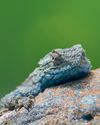
Living forwards
How photographing birds helps me face adversity
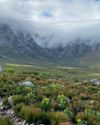
CAPE crusade
The Cape Bird Club/City of Cape Town Birding Big Year Challenge
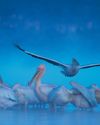
water & WINGS
WATER IS LIFE. As wildlife photographer Greg du Toit knows better than most.
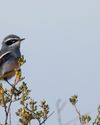
winter wanderer
as summer becomes a memory in the south, the skies are a little quieter as the migrants have returned to the warming north. But one bird endemic to the southern African region takes its own little winter journey.
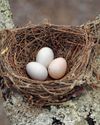
when perfect isn't enough
Egg signatures and forgeries in the cuckoo-drongo arms race

Southern SIGHTINGS
The late summer period naturally started quietening down after the midsummer excitement, but there were still some classy rarities on offer for birders all over the subregion. As always, none of the records included here have been adjudicated by any of the subregion's Rarities Committees.

flood impact on wetland birds
One of the features of a warming planet is increasingly erratic rainfall; years of drought followed by devastating floods. Fortunately, many waterbirds are pre-adapted to cope with such extremes, especially in southern Africa where they have evolved to exploit episodic rainfall events in semi-arid and arid regions. But how do waterbirds respond to floods in areas where rainfall - and access to water - is more predictable? Peter Ryan explores the consequences of recent floods on the birds of the Western Cape's Olifants River valley.
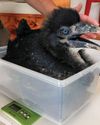
a star is born
It’s every producer’s dream to plan a wildlife television series and pick the right characters before filming.